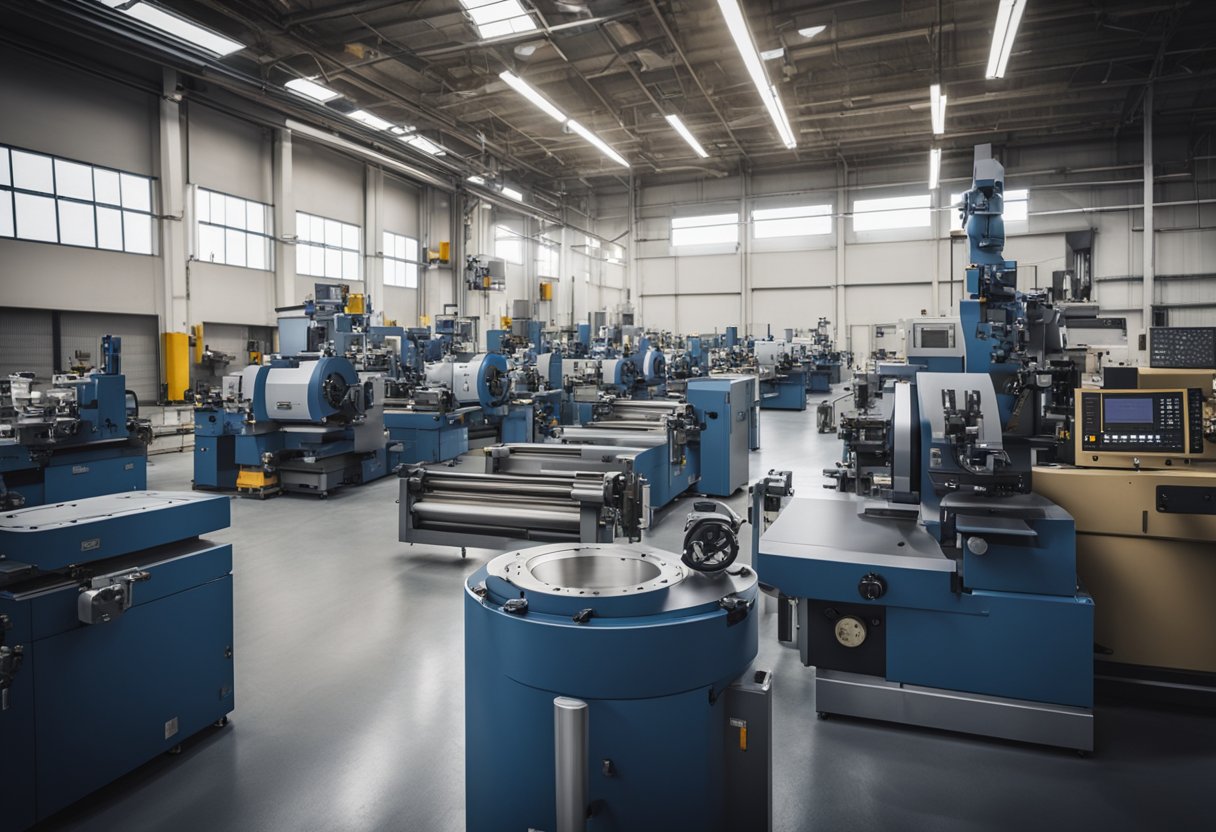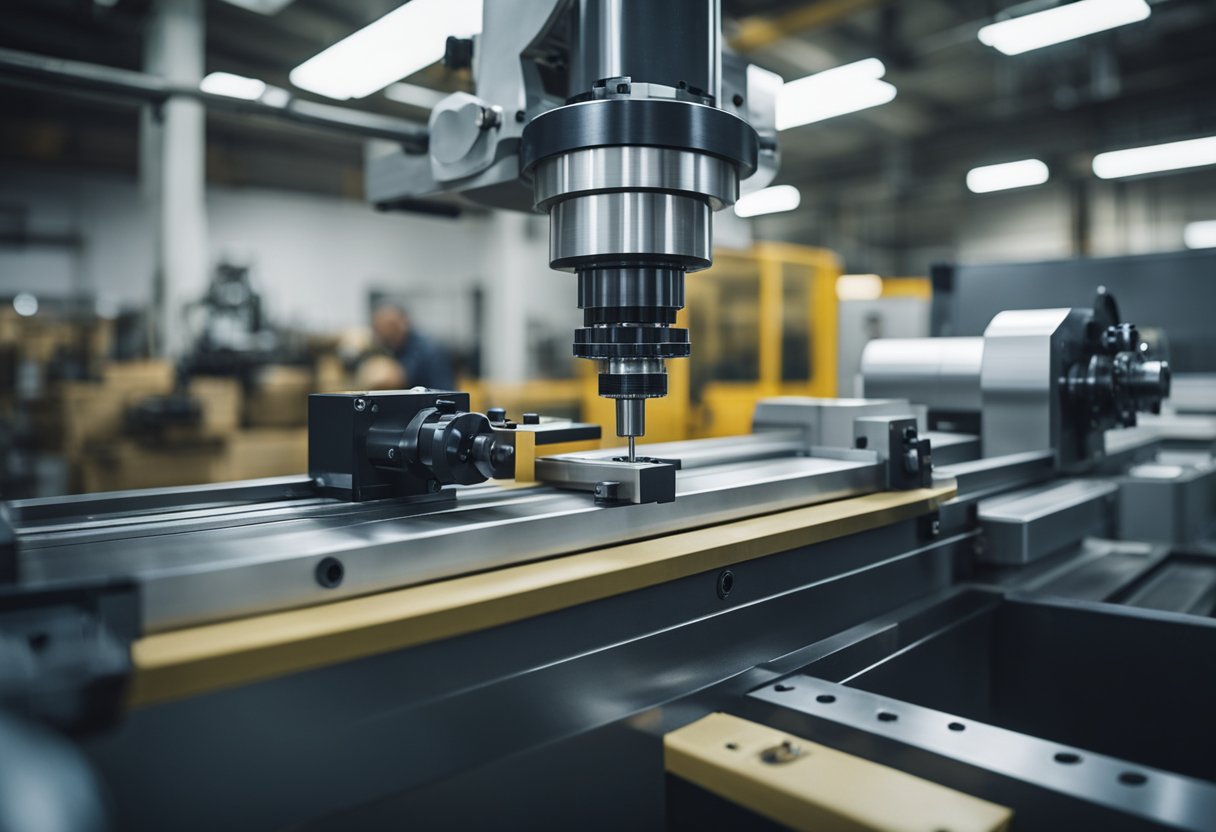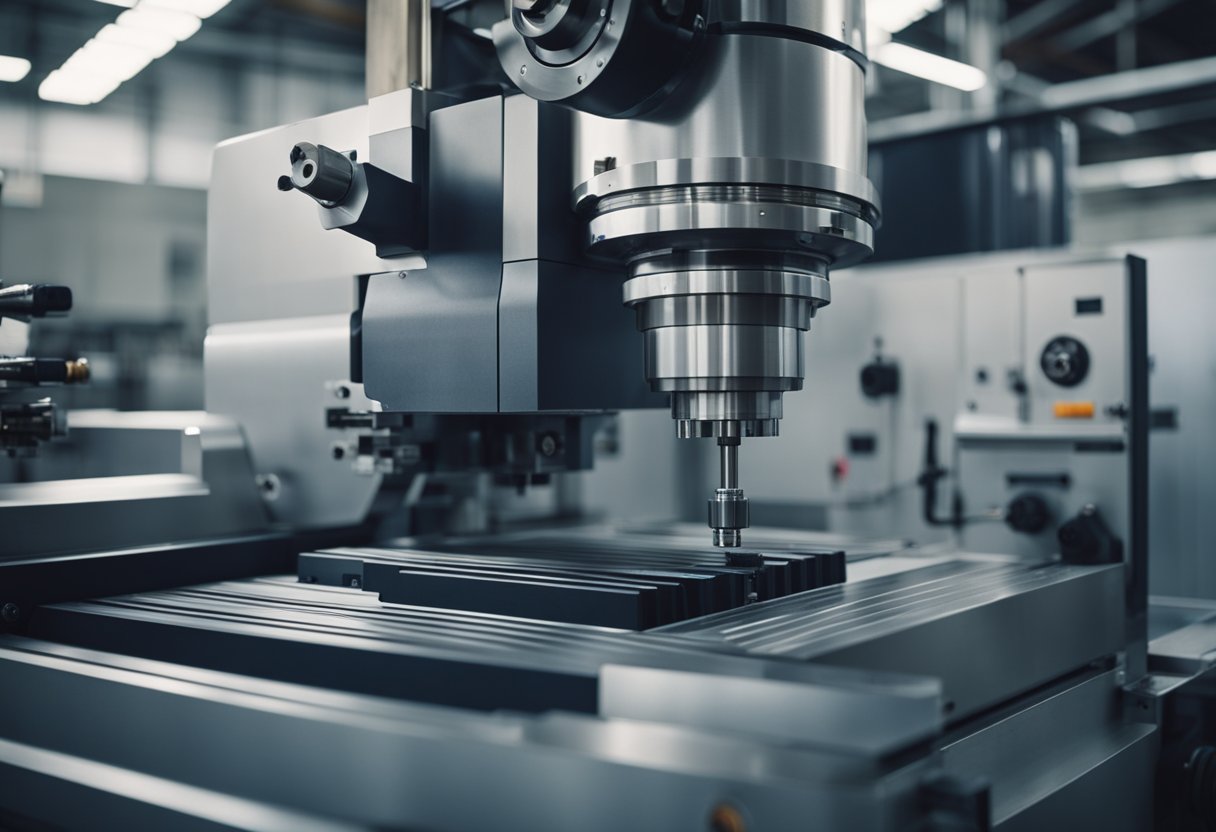CNC Lathe California: Top Providers for Precision Machining
California is home to a thriving manufacturing industry, and CNC machines play a crucial role in the production process. CNC lathes, in particular, are highly sought after for their precision and versatility. These machines use computer numerical control to automate the process of cutting and shaping materials, allowing for faster and more accurate production.

In recent years, the demand for CNC lathe services in California has grown significantly. This is due in part to the state's diverse economy, which includes industries such as aerospace, automotive, and medical device manufacturing. CNC turning and milling are essential processes in these industries, and companies rely on the latest technology to stay competitive. As a result, there are many CNC machine shops and service providers throughout California, offering a wide range of capabilities and expertise.
Whether a company needs a one-off prototype or high-volume production runs, CNC lathe services in California can provide the necessary precision and efficiency. With the latest software and equipment, these machines are capable of producing complex shapes and parts with tight tolerances. As the manufacturing industry continues to evolve, CNC machines will remain a vital tool for businesses in California and beyond.
Types of CNC Lathes in California

California is home to a diverse range of CNC lathe machines, each with unique features and capabilities. Here are some of the most common types of CNC lathes found in California:
Vertical Machining Centers
Vertical machining centers are ideal for manufacturing parts with complex geometries. These machines use a vertical spindle to rotate the workpiece, allowing for easy access to all sides of the part. Vertical machining centers are typically used for milling, drilling, and tapping operations.
Horizontal CNC Lathes
Horizontal CNC lathes are designed for high-volume production of cylindrical parts. These machines use a horizontal spindle to rotate the workpiece, and can have multiple axes for increased flexibility. Horizontal CNC lathes are commonly used for turning operations, such as facing, boring, and threading.
Swiss-Style CNC Lathes
Swiss-style CNC lathes, also known as sliding headstock lathes, are designed for small, precision parts. These machines use a sliding headstock to support the workpiece, and can have multiple spindles for increased productivity. Swiss-style CNC lathes are commonly used in the medical, aerospace, and electronics industries.
Multi-Spindle CNC Lathes
Multi-spindle CNC lathes are designed for high-volume production of simple parts. These machines have multiple spindles that can work on multiple parts simultaneously, increasing efficiency and reducing cycle times. Multi-spindle CNC lathes are commonly used in the automotive, plumbing, and hardware industries.
Whether you need a vertical machining center for complex parts or a multi-spindle CNC lathe for high-volume production, California has a variety of options to meet your needs. When choosing a CNC lathe, consider factors such as axis capabilities, turning diameter, and spindle bore to ensure that you select the right machine for your application.
Key Features of CNC Lathes
CNC lathes are an essential part of the manufacturing industry and are used to produce a wide range of precision parts. These machines are equipped with advanced features that enable them to produce complex parts with high accuracy and efficiency. In this section, we will discuss the key features of CNC lathes that make them an indispensable tool in the manufacturing industry.
Spindle Speed and Power
The spindle is the heart of the CNC lathe, and its speed and power are critical factors in determining its performance. CNC lathes are equipped with high-speed spindles that can rotate at speeds of up to 10,000 RPM or more. The spindle's power is also an important factor, and it is typically measured in horsepower (HP). CNC lathes are available with spindles that range from 5 HP to 50 HP or more, depending on the application.
Axis Configuration
CNC lathes are equipped with multiple axes that enable them to perform complex machining operations. The most common axis configuration is the X, Y, and Z axes, which provide three-dimensional machining capabilities. Some CNC lathes are also equipped with additional axes, such as the B-axis, which enables the machine to perform five-axis machining operations.
Bar Capacity and Chuck Size
The bar capacity and chuck size are important factors to consider when selecting a CNC lathe. The bar capacity refers to the maximum diameter of the bar stock that can be fed into the machine. CNC lathes are available with bar capacities ranging from 1 inch to over 6 inches. The chuck size refers to the maximum diameter of the workpiece that can be held by the machine's chuck. CNC lathes are available with chuck sizes ranging from 6 inches to over 24 inches.
Live Tooling and Sub Spindle Capabilities
Live tooling and sub spindle capabilities are advanced features that enable CNC lathes to perform complex machining operations. Live tooling allows the machine to perform milling, drilling, and tapping operations while the workpiece is still in the chuck. Sub spindle capabilities enable the machine to perform operations on both ends of the workpiece, which is especially useful for producing complex parts.
In conclusion, CNC lathes are equipped with advanced features that enable them to produce complex parts with high accuracy and efficiency. The spindle speed and power, axis configuration, bar capacity and chuck size, and live tooling and sub spindle capabilities are key features that make CNC lathes an indispensable tool in the manufacturing industry.
Applications in Industries

CNC lathe machines are widely used in various industries for their precision and efficiency. Here are some of the industries where CNC lathe machines are commonly used:
Aerospace Component Machining
The aerospace industry is one of the largest users of CNC lathe machines. These machines are used to manufacture high-precision components such as engine parts, landing gear, and flight control systems. CNC lathe machines are capable of machining a wide range of materials used in aerospace, including aluminum, titanium, and stainless steel.
Medical Device Manufacturing
CNC lathe machines are also used in the medical industry for the production of medical devices such as implants and surgical instruments. These machines are capable of producing complex shapes with high precision, which is essential for medical devices. CNC lathe machines can work with a variety of materials used in medical device manufacturing, including stainless steel and titanium.
Automotive Parts Production
The automotive industry is another major user of CNC lathe machines. These machines are used to manufacture a wide range of automotive parts, including engine components, transmission components, and suspension parts. CNC lathe machines can work with a variety of materials used in automotive parts production, including steel, aluminum, and copper.
In conclusion, CNC lathe machines are versatile tools that find applications in various industries. They are capable of machining a wide range of materials with high precision, making them an essential tool for prototyping and production.
Advanced CNC Technologies and Automation

California is home to some of the most advanced CNC technologies and automation systems in the world. These systems are designed to increase productivity, reduce waste, and improve product quality. One of the most important components of these systems is the CNC control.
The Fanuc control system is one of the most widely used in California. This system is known for its reliability, ease of use, and advanced features. The Fanuc MF-D4 control is particularly popular, as it offers advanced programming capabilities and seamless integration with other automation systems.
Automation is another key component of advanced CNC technologies. Robots are often used to automate processes such as loading and unloading parts, as well as performing complex machining operations. These robots are designed to work alongside human operators, improving productivity and efficiency.
Engineering is also an important aspect of advanced CNC technologies. Engineers work to design and optimize automation systems, ensuring that they are efficient, reliable, and safe. They also work to improve product quality and reduce waste, helping companies to stay competitive in today's fast-paced market.
Overall, advanced CNC technologies and automation systems are essential for companies looking to stay competitive in today's market. By investing in these systems, companies can improve productivity, reduce waste, and improve product quality. With the right CNC control, automation system, and engineering expertise, companies can achieve their goals and stay ahead of the competition.
Frequently Asked Questions
What factors determine the price of CNC lathes in California?
The price of CNC lathes in California can vary depending on several factors. Some of the key factors that determine the price of CNC lathes include the size of the machine, the level of automation, the complexity of the machine, and the brand. Larger machines with more advanced features tend to be more expensive than smaller, simpler machines. Additionally, well-known brands with a reputation for quality and reliability may come with a higher price tag.
Where can I find quality used CNC lathes in California?
There are several places you can look for quality used CNC lathes in California. Online marketplaces such as eBay and Craigslist can be a good place to start, as well as industrial equipment auctions. It's important to do your research and make sure you're buying from a reputable seller to avoid any potential issues.
Which brands are considered the best for CNC lathes in California?
There are several brands that are well-known for producing high-quality CNC lathes in California. Some of the top brands include Haas, Mazak, Okuma, and Doosan. However, the best brand for you will depend on your specific needs and budget.
How do metal and wood CNC lathes differ in their functionalities?
While both metal and wood CNC lathes operate on similar principles, there are some key differences in their functionalities. Metal lathes are typically designed to handle harder materials and require more power to operate, while wood lathes are typically smaller and less powerful. Additionally, wood lathes often have features specifically designed for woodturning, such as a tool rest and tailstock.
What should I consider when purchasing a small CNC lathe in California?
When purchasing a small CNC lathe in California, there are several factors to consider. Some key considerations include the size of the machine, the level of automation, the complexity of the machine, and the brand. Additionally, it's important to consider your specific needs and budget to ensure you're getting the right machine for your needs.
What are the safety precautions to take when operating a CNC lathe?
Operating a CNC lathe can be dangerous if proper safety precautions are not taken. Some key safety precautions to take include wearing appropriate personal protective equipment, ensuring the machine is properly maintained and in good working condition, and following all manufacturer instructions and guidelines. Additionally, it's important to receive proper training and certification before operating a CNC lathe.
